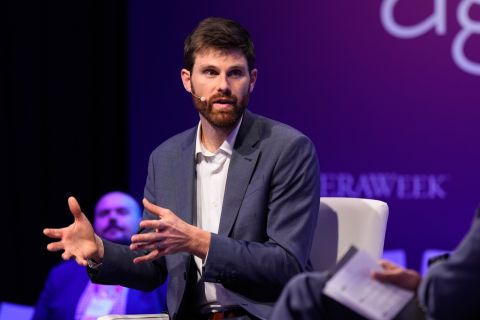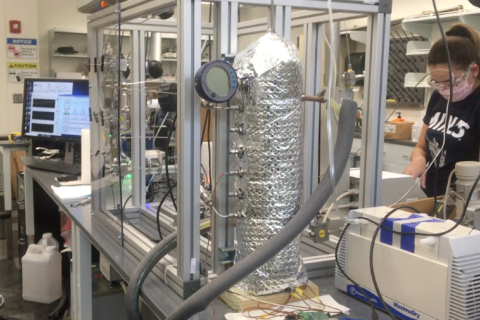Based on what Jeff Sandefer, president of Sandefer Capital Partners, has learned in the past 20 years in the E&P business, "I don't know how to make money in this business today. To tell the truth, we're selling most of what we have right now. How do you make money without playing the commodity cycles?" Austin-based Sandefer invests in E&P companies. The business has changed so much in the past 20 years that the old ways to gain an upper hand no longer exist, he told Houston Producers' Forum members at a recent program. "Back in the old days, there were still a lot of fields to be found. Back then, they had the major oil companies who put a huge umbrella over us. They trained people and we hired them away. They spent millions on research to develop technologies that we later used." Today, all the low-hanging fruit has been picked as far as easy fields are concerned. "It's really just a money-changing-hands kind of thing for those of us buying and selling properties," he said. "It's so transparent and the data is so good for everyone that buying and selling is a very hard way to make money. And the majors have stopped doing all the dumb things they used to do to allow us to make money under them. They've become much more efficient." Sandefer doesn't think Royal Dutch/Shell will be the last major to experience reserve write-downs. "I think we're going to go from PUDs to IUDs, as in, imaginary undeveloped," he said. "I think there will be a huge increase in the percent of PUDs as a percent of total proved reserves. This trend of increasing PUDs without increasing production can't go on forever." Service costs are going up and the quality of employees within the service sector seems to be going down. Sandefer recently visited a rig with his 3-year-old child and encountered some colorful characters. "I asked my friend where he got all the people working out there and he told me they'd all just gotten out of jail," he said. "You can imagine the impact the people out there will have on the amount of time it takes to drill a well." Many companies are turning to unconventional resources but Sandefer cautions those who think these are easy to produce. "You think the oil business is hard? You should be in oil shale," he said. "We cook a ton of dirt just to get one barrel of oil. It takes a lot of work to get these unconventional resources projects up and running and you have to put a lot of money up for a long time. You're just praying prices will stay up, which in effect means you're basically praying that this time will be different." Sandefer says the industry has seen the end of the time when it was possible to drill a well, put it on production, and rake in returns systematically. Today, producers are forced to get their money back all at once or put more of it up and wait. "I don't mean to be depressing here, but I just don't know how to make money in this business without playing the commodity prices," Sandefer said. He added that legendary Dallas oilman T. Boone Pickens always lamented that people judged his intelligence based on the price of oil and gas, causing him to joke, "Well, gas is $1.50, so if you guys could just talk real slow...."
Recommended Reading
Spate of New Contracts Boosts TechnipFMC's Subsea Profits
2024-04-30 - TechnipFMC's operational profits are growing as the company heightened its focus on “quality” subsea orders, which earned $2.4 billion for the first quarter.
AI Advancing Underwater, Reducing Human Risk
2024-03-25 - Experts at CERAWeek by S&P Global detail the changes AI has made in the subsea robotics space while reducing the amount of human effort and safety hazards offshore.
Exclusive: Cost-effective Benefits of Extracting from Mature Assets
2024-05-13 - Baker Hughes' well abandonment leader Bart Joppe details the importance of extracting resources from mature assets and the company's approach to managing a well, in this Hart Energy Exclusive interview.
Tech Trends: AI Increasing Data Center Demand for Energy
2024-04-16 - In this month’s Tech Trends, new technologies equipped with artificial intelligence take the forefront, as they assist with safety and seismic fault detection. Also, independent contractor Stena Drilling begins upgrades for their Evolution drillship.
Going with the Flow: Universities, Operators Team on Flow Assurance Research
2024-03-05 - From Icy Waterfloods to Gas Lift Slugs, operators and researchers at Texas Tech University and the Colorado School of Mines are finding ways to optimize flow assurance, reduce costs and improve wells.





